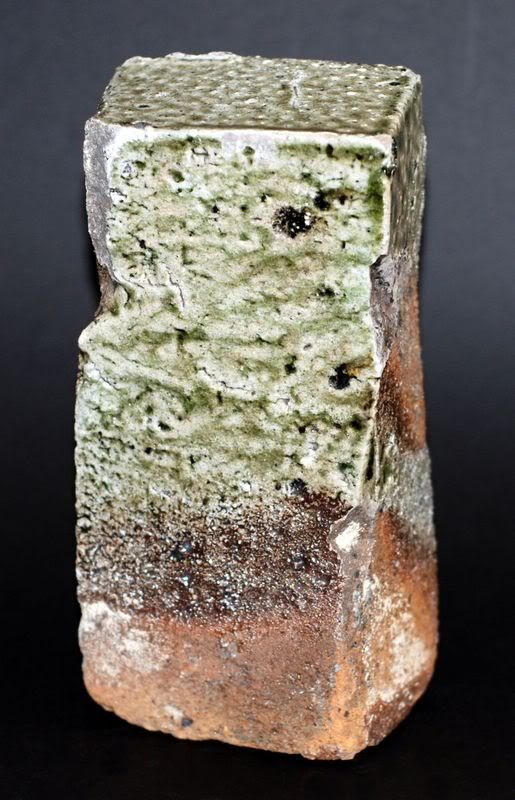Latest topics
Early New Zealand bricks
4 posters
Page 1 of 1
 Early New Zealand bricks
Early New Zealand bricks
The first bricks in New Zealand were part of a pre-fabricated house gifted to Te Pahi by the Governor of NSW in 1806. The house arrived on the Lady Nelson and the ship's carpenter assembled it on Te Pahi's island. The house was destroyed during a reprisal raid after the sacking of the Boyd in 1809. These bricks were probably fired at either Parramatta or the Brickfields in Sydney.
When the first Church Missionary Society settlement was established at Oihi or Rangihoua in the Bay of Islands in 1814 bricks were needed for chimneys. William Hall, Lay Preacher and Supervisor of Mechanics, kept a diary of activities at the settlement and records obtaining bricks from visiting ships. Whaling ships had on board rendering facilities called tryworks. When the ship was full with oil the bricks that protected the ship from the fire under the pots were redundant and Hall the lucky recipient of some of them.
In 1816 Hall entered into a contract with Tully Mathews, an Irish convict, to make 20,000 bricks for the settlement. Tully had been convicted at Dundalk in 1808 and transported to Port Jackson on the Boyd. By the time Tully arrived at Rangihoua the wreck of the Boyd was a source of scrap iron for the blacksmith at the settlement. Iron from the knees of the ship were converted into toki a prized trade item.
Part of Samuel Marsden's strategy for the conversion of Maori to Christianity was through demonstrating the merits of European civilisation. He established a trade training school at Parramatta in a building he named Rangihu. BY 1819 young Maori men were learning the mechanical arts at this "Maori Seminary" and in that year two were learning brickmaking. After a series of deaths of students the school was closed but its location is marked by present day Rangihou and New Zealand Streets in North Parramatta.
The settlers at mission stations had to be self reliant and early journals relate the efforts of preachers turning their hand to brickmaking, carpentry and other skills. The introduction of trades or the mechanical arts to New Zealand was a combination of missionary and whaling industry necessity. Hall's diary records the difficulties of moulding, drying and firing bricks with unknown clay in an uncertain climate.
Tully's bricks would have been clamp fired so evidence of these burnings may still remain at Oihi.
When the first Church Missionary Society settlement was established at Oihi or Rangihoua in the Bay of Islands in 1814 bricks were needed for chimneys. William Hall, Lay Preacher and Supervisor of Mechanics, kept a diary of activities at the settlement and records obtaining bricks from visiting ships. Whaling ships had on board rendering facilities called tryworks. When the ship was full with oil the bricks that protected the ship from the fire under the pots were redundant and Hall the lucky recipient of some of them.
In 1816 Hall entered into a contract with Tully Mathews, an Irish convict, to make 20,000 bricks for the settlement. Tully had been convicted at Dundalk in 1808 and transported to Port Jackson on the Boyd. By the time Tully arrived at Rangihoua the wreck of the Boyd was a source of scrap iron for the blacksmith at the settlement. Iron from the knees of the ship were converted into toki a prized trade item.
Part of Samuel Marsden's strategy for the conversion of Maori to Christianity was through demonstrating the merits of European civilisation. He established a trade training school at Parramatta in a building he named Rangihu. BY 1819 young Maori men were learning the mechanical arts at this "Maori Seminary" and in that year two were learning brickmaking. After a series of deaths of students the school was closed but its location is marked by present day Rangihou and New Zealand Streets in North Parramatta.
The settlers at mission stations had to be self reliant and early journals relate the efforts of preachers turning their hand to brickmaking, carpentry and other skills. The introduction of trades or the mechanical arts to New Zealand was a combination of missionary and whaling industry necessity. Hall's diary records the difficulties of moulding, drying and firing bricks with unknown clay in an uncertain climate.
Tully's bricks would have been clamp fired so evidence of these burnings may still remain at Oihi.

TonyK- Number of posts : 653
Location : Sydney Australia
Registration date : 2008-08-28
 Re: Early New Zealand bricks
Re: Early New Zealand bricks
Would there have been any markings on these early bricks? Do you have pics of any you can post?

HeatherT- Number of posts : 873
Location : Whangarei, New Zealand
Interests: : Crown Lynn animals, swans and vases
Registration date : 2008-08-28
 Early New Zealand bricks
Early New Zealand bricks
The only brick I have from the pre-1840 era was collected during a heritage assessment of the area where John King's cottage stood. It's not marked.
Sandstock or slop-moulded bricks made for an individual user often weren't marked or named. Only when a brick industry developed and competing makers were supplying in a common market was making necessary.
Bricks made in the convict era in NSW were often marked with variations of the broad arrow that denotes government property but I don't know whether any of these made their way over to NZ. Bricks were used as ballast so may have been discarded in harbours when cargo was loaded.
Sandstock or slop-moulded bricks made for an individual user often weren't marked or named. Only when a brick industry developed and competing makers were supplying in a common market was making necessary.
Bricks made in the convict era in NSW were often marked with variations of the broad arrow that denotes government property but I don't know whether any of these made their way over to NZ. Bricks were used as ballast so may have been discarded in harbours when cargo was loaded.

TonyK- Number of posts : 653
Location : Sydney Australia
Registration date : 2008-08-28
 Re: Early New Zealand bricks
Re: Early New Zealand bricks
My most prized brick



TimCaulton- Number of posts : 163
Location : Auckland
Registration date : 2009-12-29
 Re: Early New Zealand bricks
Re: Early New Zealand bricks
Just had a Driving Creek brick added to my ceramics room. Two more to come.

TimCaulton- Number of posts : 163
Location : Auckland
Registration date : 2009-12-29
 Re: Early New Zealand bricks
Re: Early New Zealand bricks
Oh how Yummy your brick is Tim.... I adore salt glazed bricks.
I have two that support my kiln....
went to take a pic, but changed my mind as it's a mission impossible lolz
There will be a window of opportunity one day to take pics I hope.
I have two that support my kiln....
went to take a pic, but changed my mind as it's a mission impossible lolz
There will be a window of opportunity one day to take pics I hope.
Page 1 of 1
Permissions in this forum:
You cannot reply to topics in this forum
» Steenstra Vase with decals
» Steenstra Brick Clay Vase being used for the first time!
» Kermiko Vase in pastel green
» Temuka hand painted fun bowl.
» Carrick Oliver coffee pot
» Is this a Dorothy Thorpe cream jug? No mark stamped
» Name this plate please. It's Riverside.
» Titian Studio Presley Ware V117 stunning lustre glaze